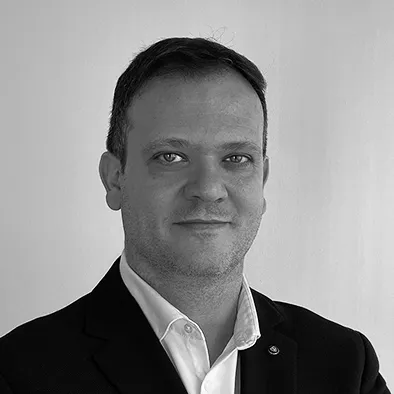Mark
Esposito

Switzerland Visiting Professor of Strategy Bologna Business School Visiting Faculty
Dr. Mark Esposito is a Professor of economics and public policy with appointments at Hult Int’l Business School as well as Harvard University. He equally serves as Adjunct Professor at Georgetown University’s McDonough School of Business.
At Harvard, he serves as social scientist with affiliations at Harvard Kennedy School’s Center for International Development; Harvard University’s Institute for Quantitative Social Science (IQSS) and the Davis Center for Eurasian Studies. He is an incoming faculty affiliate of the Berkman Klein Center for Internet and Society at Harvard.
He has been affiliate faculty of the Microeconomics of Competitiveness at Harvard Business School, under the mentorship of Prof. Michael E. Porter for over a decade and he served as Founding Fellow of the Circular Economy Research Center at the Judge Business School, at the University of Cambridge, where he retains a Senior Associate role.
He advises governments in the GCC and Eurasia regions and is a global expert of the World Economic Forum where he serves as part of the Global AI Alliance as well as the Converging Technologies project.
He co-founded the Machine Learning research firm, Nexus FrontierTech and the EdTech venture, The Circular Economy Alliance. He has equally co-founded The Chart ThinkTank and The AI Native Foundation.
Dr. Esposito has written or co-written over 150 publications, both peer-reviewed and non-peer-reviewed, and 13 books, two of which are Amazon bestsellers: “Understanding how the Future Unfolds” (2017) and “The AI Republic” (2019). His most recent books include “The Emerging Economies under the Dome of the Fourth Industrial Revolution” (Cambridge University Press, 2022), “The Great Remobilization: Strategies and Designs for a Global Smarter World” (MIT University Press, 2023), and “Digitizing the Emerging Economies” (Cambridge University Press, 2024). His forthcoming books are “Tectonic Shifts: How Technology is Remaking Global Power Dynamics” (Penguin Random House, 2025) and “Becoming AI Native: A Playbook for Businesses” (Routledge, end of 2025). He is a regular contributor to Project Syndicate, World Economic Forum Blog, California Management Review, and Harvard Business Review.
He has a doctorate from Ecole des Ponts Paris Tech and he lives across Boston, Geneva and Dubai.
COURSES
This course addresses the challenges facing executives of modern business who need to deal with increasing community expectations for economic, societal and environmental sustainability of their organizations. Contemporary, economics-based models of firms and markets are used to analyze a wide range of strategic real-world scenarios. Students will learn how to identify and choose a superior competitive position, gain and sustain competitive advantage, and how to create an organizational context to make the chosen strategy work. They will also be exposed to analytic tools that help them in making strategic decisions. The single biggest concern of senior executives in global surveys year after year is that their business models are not innovative and therefore, noncompetitive. A related concern is that, absent an innovative model, their company can easily be disrupted. Academic studies have conclusively demonstrated that the highest return on innovation
investment is in the creation of innovative business models.
This course is designed to provide participants with an understanding of how artificial intelligence (AI) and machine learning (ML) can be used to create value in various business contexts. In this course, participants will learn how to identify opportunities to apply AI and ML in different business areas, such as marketing, finance, operations, and customer service.
Data ManagementThis course specifically targets the executives of modern businesses who confront the growing consumers’ expectations regarding the economic, societal, and environmental impact of their organizations. By utilizing contemporary, economics-based models of firms and markets, a diverse range of strategic real-world scenarios are examined. Students will gain the knowledge and skills to effectively identify and select a superior competitive position, establish and maintain a competitive advantage, and create an organizational context that facilitates the successful implementation of their chosen strategy. Moreover, they will be introduced to analytical tools that support them in making strategic decisions. Extensive research has definitively shown that the creation of innovative business models yields the highest return on investment for fostering innovation and this course provides effective frameworks to validate any high level corporate strategy and product diversification.
Food Innovation and RegenerationThis course is designed to provide participants with an understanding of how artificial intelligence (AI) and machine learning (ML) can be used to create value in various business contexts. In this course, participants will learn how to identify opportunities to apply AI and ML in different business areas, such as marketing, finance, operations, and customer service.
Artificial Intelligence for BusinessThe purpose of this module is to increase awareness of the role and functioning of modern corporations as sustainability challenges, opportunities, and solutions emerge. My objective is to enhance our collective awareness of the multiplicity of issues associated with sustainability and explore what all of this means for firms. Towards this end, I have outlined three facets of sustainability – adapting to new demands, dealing with multiple stakeholders and creating a temporal horizon– that can serve as the basis for deepening your understanding of issues connected with sustainability.
Sustainability ManagementSustainability Transition Management (Part-time)
